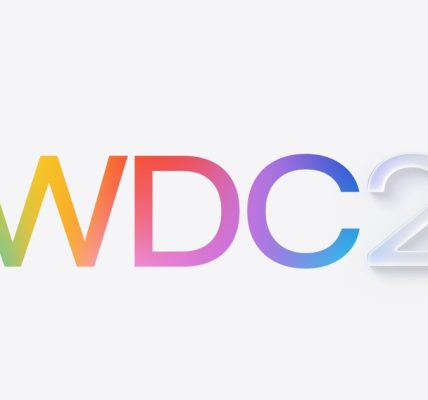The War Between the Hezbollah and the U.S. in Syria and Iraq: Austin and Kassem Reveals Israeli Effort to Take Back the Faith
Lloyd Austin spoke with Israel’s defense minister on Monday about the serious consequences for Iran if it launched a strike against Israel. The United States is concerned about the threat of Iran-backed groups to our troops in Iraq and Syria. Austin said that the U.S. supports Israel because Hezbollah cannot threaten the border towns. He called on Israel to make a pivot to diplomacy.
Israeli security analysts said Israel’s bombing campaign in Yemen was a message to Iran, showing Israel’s long-range flight capability as a tacit warning to Iran that it, too, was within Israel’s reach.
Israeli troops have entered Lebanon to target Hezbollah military compounds close to the border, according to an Israeli security official. The official said the military is “acting in a limited area focusing on the villages right by the border. A lot of homes are close to the border, and some are hundreds of meters away. The official made it clear that there is no ground incursion into Lebanon on the table.
On Monday, Hezbollah’s deputy leader, Naim Kassem, said in a televised address that “the resistance forces are ready for a ground engagement.” That was despite a series of devastating Israeli attacks on Hezbollah leaders and members in recent weeks.
The Israeli military pressed its ground incursion into southern Lebanon on Tuesday, calling the operations “limited incursions” targeting Hezbollah militants.
The military is engaged in warfare on several fronts. Israel has continued with its operation in Gaza. On Sunday, Israel’s military said it sent dozens of fighter jets more than 1,000 miles away to Yemen, where it said it bombed power plants and a seaport used by the Houthis to import oil for military purposes. At least four people were killed and many others were wounded when the areas hit were civilian targets by Israeli strikes.
After the assault on Israel by the Palestinian militant group Hamas, Israel and Hezbollah began fighting each other.
A White House official told NPR the U.S. supports the incursion but is warning Israel about “mission creep.” The Israeli ambassador to the U.S. told Israeli public radio the U.S. has not restricted the duration of Israel’s incursion but that it is concerned about a regional escalation.
“We definitely keep saying violence cannot stop violence. We need diplomatic efforts to stop the violence,” Saliba said. “We don’t want Lebanon to also turn into another Gaza.”
“This is not an incursion, this is an invasion,” Najat Aoun Saliba, a Lebanese member of parliament, told NPR. “We’ve been invaded by another country and we have to call on the international community to call it as such.”
The conflict entered a dramatic new phase over the weekend, following Israel’s killing of Hezbollah’s longtime leader Hassan Nasrallah, as well as several other top officials.
On social media, the Israeli military’s Arabic spokesperson, Avichay Adraee, warned residents of an additional 24 villages in southern Lebanon to evacuate immediately. He said that any civilian near Hezbollah fighters or facilities is at risk of their lives.
Riza called on the international community to ensure protection of civilians as violence escalates. Humanitarians risk leaving the population of an entire country without the support they need if they do not have enough resources.
Lebanon’s caretaker prime minister, Najib Mikati, warned on Tuesday that his country was facing “one of the most dangerous phases of its history,” urging the United Nations for emergency funding for civilians impacted by the conflict.
Israel’s response to Iran’s attack on Hezbollah is crucial for the survival of a nuclear weapon in the Middle East
Lebanese politicians urgently called on the international community to pressure Israel to stop its advance into Lebanese territory on Tuesday, as Israeli troops crossed into southern Lebanon in an operation targeting Hezbollah outposts.
“Israel has much more free rein in the Iranian context than in April, as there’s essentially no more threat that Hezbollah would join,” Mr. Citrinowicz said.
In April, Israel was worried about what would happen if it issued too much of a response to Iran.
Danny Citrinowicz, a former Israeli intelligence officer who specialized in Iran said after launching a bombing campaign that killed Hezbollah’s leader and other commanders, Israel has weakened Hezbollah and made Iran less of a deterrent to a wider Israeli attack.
The Israel response could be called on by the Biden administration. But with American elections fast approaching, U.S. officials were likely to have less influence than they did in April, Mr. Citrinowicz said, when they similarly pressed to avoid an attack that could escalate the conflict.
Israeli military spokesperson Rear Adm. Daniel Hagari called Iran’s attack “a severe and dangerous escalation,” and promised, “We will respond wherever, whenever and however we choose.” On Wednesday, Israel’s ambassador to the United Nations, Danny Danon, said the response will be ”decisive and painful.”
Even an attack on Iran’s nuclear facilities — long a source of fear for Israel, which worries about Tehran gaining a nuclear weapon — “should be considered,” General Amidror added.
Naftali Bennett, a former Israeli prime minister, wrote on social media that Israel was facing “the biggest opportunity in the past 50 years” to change the face of the region.
Mr. Bennett said that they need to destroy Iran’s nuclear project, destroy their energy facilities, and critically hit the terrorist regime. “The tentacles of that octopus are severely wounded — now’s the time to aim for the head,” he added.
Iran’s Revolutionary Guard said late Tuesday that the missile attack was in response to several recent killings, including the assassination of Hezbollah’s leader Hassan Nasrallah late Friday in Beirut; the death of Hamas leader Ismail Haniyeh, who was killed in Tehran in July in a strike widely assumed to be carried out by Israel; and an Iranian commander.
There was only one confirmed death from the Iranian attack and that was in the Israeli-occupied West Bank where a Palestinian man was killed by a missile.
According to The Associated Press, Hezbollah said it had killed and wounded an unknown number of Israeli troops in Lebanon.
The army said it is sending additional soldiers and tanks to assist in the ground offensive against Hezbollah in Lebanon.


